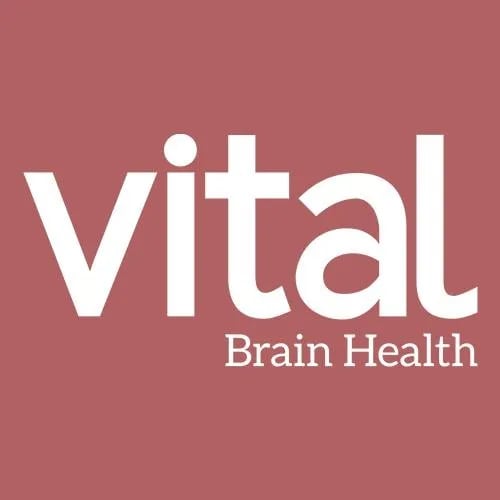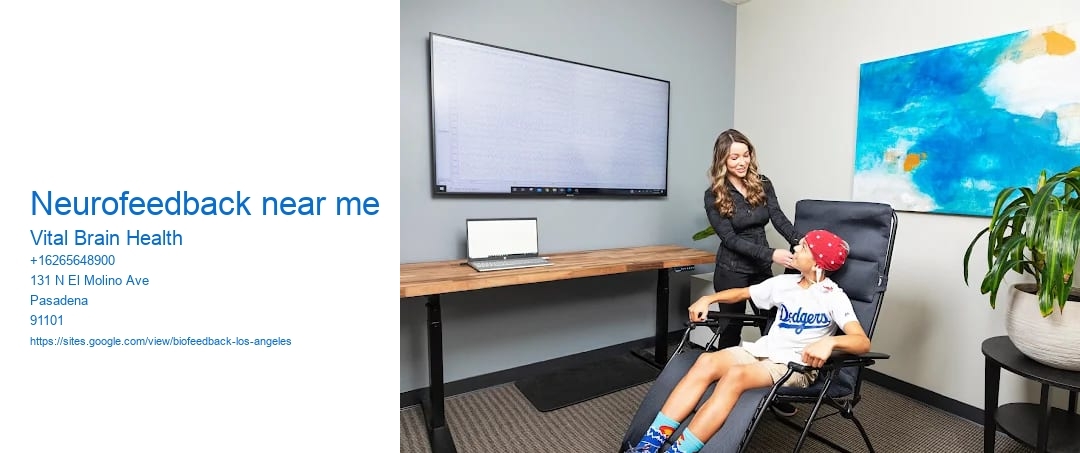Benefits of Neurofeedback Therapy
Neurofeedback therapy is an innovative and non-invasive approach that has garnered significant attention in recent years for its potential benefits in addressing a variety of neurological and psychological conditions. Los Angeles Neurofeedback services . As individuals increasingly seek alternative treatments close to home, the interest in neurofeedback therapy has grown, prompting many to search for "neurofeedback near me" to access its potential benefits.
One of the primary advantages of neurofeedback therapy is its ability to promote self-regulation of brain function. By providing real-time feedback on brain activity, neurofeedback allows individuals to gain insight into their neurological patterns and work towards optimizing them. This process can lead to improved mental clarity, emotional regulation, and overall cognitive function. For individuals dealing with anxiety, depression, ADHD, or other mental health challenges, neurofeedback offers a pathway to greater self-awareness and control, potentially reducing the symptoms associated with these conditions.
Moreover, neurofeedback therapy is a personalized treatment. Unlike medications, which can have a one-size-fits-all approach and may lead to undesirable side effects, neurofeedback is tailored to each individuals unique brain activity. This customization helps ensure the therapy targets specific areas that require attention, enhancing its effectiveness. As a result, many people experience improvements in areas such as concentration, memory, and emotional resilience, contributing to a better quality of life.
Another significant benefit of neurofeedback therapy is its non-invasive nature. The procedure typically involves placing sensors on the scalp to monitor brainwave activity, which is then displayed on a computer screen. This setup allows individuals to receive feedback in real time, often through visual or auditory cues, without the need for any surgical intervention or medication. This aspect of neurofeedback makes it an attractive option for those who are cautious about invasive procedures or the side effects associated with pharmaceutical treatments.
Furthermore, neurofeedback therapy encourages long-lasting changes. By training the brain to function more efficiently, individuals often experience enduring benefits, even after the therapy sessions have concluded. This long-term impact is particularly appealing for those seeking sustainable solutions to their mental health challenges.
As the popularity of neurofeedback therapy grows, more clinics and practitioners are offering this service, making it increasingly accessible to those searching for "neurofeedback near me." This accessibility, combined with the therapys potential benefits, positions neurofeedback as an appealing option for individuals seeking to improve their mental well-being and cognitive performance.

In conclusion, neurofeedback therapy presents a promising alternative for those looking to enhance their brain function and mental health. With its ability to foster self-regulation, provide personalized treatment, and deliver long-lasting results without the need for invasive procedures, neurofeedback is a compelling choice for many. As more people discover the benefits of this therapy, the search for local neurofeedback services is likely to continue to rise, making it an important topic of discussion and exploration in the realm of mental health and wellness.
How to Find Neurofeedback Services Near You
Finding neurofeedback services near you can be a crucial step towards enhancing mental well-being and cognitive performance. Neurofeedback, also known as EEG biofeedback, is a non-invasive therapy that helps individuals learn to regulate their brain function. It has been used to address a variety of issues, including anxiety, ADHD, depression, and even peak performance training. If you are considering neurofeedback as a potential solution, here are some steps to help you locate services in your area.
Begin your search by conducting a thorough online investigation. Use search engines and directories to look for neurofeedback practitioners or clinics nearby. Terms like "neurofeedback near me" or "EEG biofeedback services" can yield helpful results. Make sure to explore the websites of these practitioners to gather information about their services, credentials, and client testimonials. Reading reviews and testimonials can provide insight into the experiences of past clients and the effectiveness of the services offered.
Another effective approach is to consult with healthcare professionals. Speak with your primary care physician, psychologist, or psychiatrist about your interest in neurofeedback. They may have recommendations or be able to refer you to reputable practitioners in your area. Additionally, some healthcare providers may offer neurofeedback services as part of their practice or be associated with clinics that do.

Networking within local health and wellness communities can also be beneficial. Attend workshops, seminars, or support groups focused on mental health or complementary therapies. Engaging with these communities may lead to personal recommendations and valuable insights into finding qualified neurofeedback providers.
When evaluating potential neurofeedback services, it is important to consider the qualifications and experience of the practitioners. Look for certified professionals who have undergone proper training and have a solid track record in administering neurofeedback therapy. Organizations such as the Biofeedback Certification International Alliance (BCIA) provide certification for neurofeedback practitioners, ensuring that they meet certain standards of competence and ethics.
Finally, consider scheduling an initial consultation with a potential provider.
At Vital Brain Health we help with adhd guidance pasadena ca so you can smile a little more while finding balance in life
- At Vital Brain Health we help with adhd guidance pasadena ca so you can smile a little more while finding balance in life
Finding the right neurofeedback services near you involves research, consultation, and careful consideration of your personal needs. By taking the time to explore your options and seek professional guidance, you can make an informed decision and take a positive step towards improving your mental health and cognitive function.

Comparing Different Neurofeedback Providers
In recent years, neurofeedback has emerged as a promising approach for addressing a range of neurological and psychological issues, from anxiety and depression to ADHD and PTSD. As interest in this innovative therapy grows, so too does the number of providers offering neurofeedback services. For someone searching for "neurofeedback near me," the options can seem overwhelming. Thus, it is essential to compare different neurofeedback providers to ensure that you choose the best fit for your needs.
One of the first aspects to consider when comparing neurofeedback providers is the credentials and expertise of the practitioners. Neurofeedback is a specialized field that requires a deep understanding of both neuroscience and psychology. Therefore, it is crucial to seek out providers who are certified by recognized professional organizations, such as the Biofeedback Certification International Alliance (BCIA). Certified practitioners are more likely to have undergone rigorous training and adhere to high ethical standards, which can significantly impact the quality of care you receive.
Another critical factor is the technology and equipment used by the provider. Neurofeedback relies on sophisticated equipment to monitor brain activity and provide real-time feedback. Different providers may use varying types of equipment, such as EEG machines or advanced software programs. It is worth inquiring about the specific technology used by a provider and whether it is up-to-date and validated by research. Cutting-edge technology can enhance the accuracy and effectiveness of neurofeedback therapy, potentially leading to better outcomes for clients.
The approach and methodology employed by a neurofeedback provider also warrant careful consideration. Some providers may follow a standardized protocol, while others might tailor their approaches to the individual needs of their clients. Personalized treatment plans can be particularly beneficial, as they take into account the unique brain patterns and challenges of each person. During initial consultations, discussing the provider's methodology and assessing whether it aligns with your expectations and treatment goals can be an enlightening exercise.
Moreover, the cost and accessibility of services are practical concerns that should not be overlooked. Neurofeedback therapy can be a significant financial investment, and prices may vary widely among providers. It is advisable to obtain detailed information about the cost per session, the number of sessions recommended, and available payment plans or insurance options. Additionally, consider the location and scheduling flexibility of the providers practice. Convenient access to the facility and accommodating hours can make a substantial difference in maintaining consistent attendance and achieving desired results.
Lastly, testimonials and reviews from past clients can offer valuable insights into the experiences of others and the reputation of the provider. Online platforms and community forums can be an excellent resource for gathering feedback. Positive reviews and personal recommendations from trusted sources can provide peace of mind and reinforce confidence in your choice.
In conclusion, selecting a neurofeedback provider requires careful consideration of multiple factors, including practitioner credentials, technology used, treatment approach, cost, and client reviews. By conducting thorough research and asking pertinent questions, you can make an informed decision that aligns with your therapeutic needs and goals. Ultimately, the right neurofeedback provider can play a crucial role in facilitating positive changes in brain function and overall well-being.
Cost and Insurance Considerations for Neurofeedback Sessions
Neurofeedback, a form of biofeedback therapy, has been gaining attention as an alternative treatment for a variety of neurological conditions such as ADHD, anxiety, depression, and PTSD. As individuals become more interested in exploring this non-invasive therapy, understanding the cost and insurance considerations for neurofeedback sessions becomes essential.
The cost of neurofeedback can vary significantly depending on several factors, including the location of the clinic, the expertise of the practitioner, and the condition being treated. On average, a single neurofeedback session can range from $100 to $250. However, most treatment plans require multiple sessions, often ranging from 20 to 40 sessions, which can accumulate to a substantial financial commitment for many individuals.
Insurance coverage for neurofeedback is one of the primary concerns for those considering this therapy. Unfortunately, as of now, many insurance companies do not fully cover neurofeedback therapy, viewing it as an experimental or alternative treatment. However, there are instances where insurance may cover a portion of the cost, especially if neurofeedback is prescribed by a qualified healthcare provider and is part of a comprehensive treatment plan. It is crucial for individuals to thoroughly review their insurance policy and speak directly with their insurance provider to understand the extent of coverage and any required documentation.
For those without insurance coverage or with limited financial resources, some clinics offer sliding scale fees or payment plans, making neurofeedback more accessible. Additionally, individuals may explore flexible spending accounts (FSAs) or health savings accounts (HSAs) to pay for sessions using pre-tax dollars, which can alleviate some financial burden.
As the demand for neurofeedback continues to grow, there is hope that insurance companies will soon recognize its therapeutic potential and expand coverage. Until then, prospective patients should conduct thorough research, consult with healthcare providers, and explore all available financial options to ensure that they can make informed decisions about their treatment.
